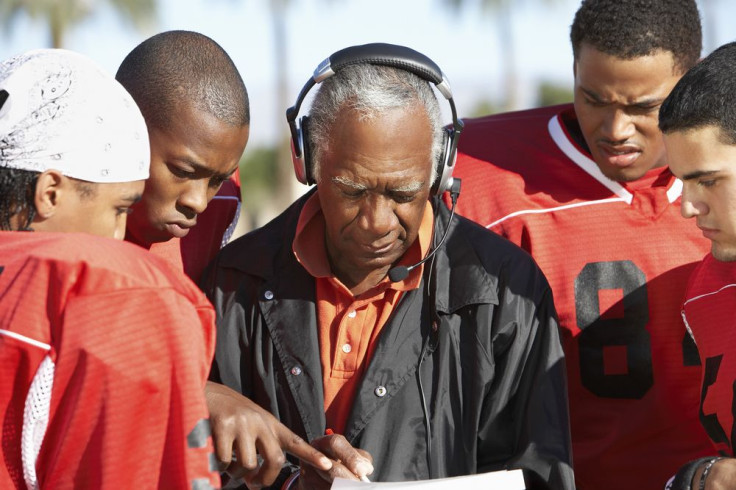NCAA Athletes Are More Likely To Cheat If Their Coach Is Abusive

Following several high profile incidents that involved collegiate coaches’ alleged abusive behavior toward players, the National Collegiate Athletic Association (NCAA) has made it a point to monitor the treatment of athletes by their coaching staff. A recent study published by the American Psychological Association suggests that college athletes with an abusive coach are more willing to cheat in competition than athletes with an ethical coach.
"Ethical behavior of coaches is always in the spotlight," said Dr. Mariya Yukhymenko, lead researcher and visiting research associate at the University of Illinois at Chicago, in a statement. "Our study found several negative effects related to abusive coaches, including a willingness by players to cheat to win games."
Yukhymenko and her colleagues analyzed data from the Growth, Opportunities, Aspirations and Learning of Students (GOALS) survey, which was answered by 19,920 student athletes from 609 colleges. In 2010, questions concerning the ethical or abusive behavior of coaches were added to the GOALS survey. Researchers focused on coaches verbally abusing their players by ridiculing or putting them down in front of their teammates. Although the research did not determine if cheating was encouraged or permitted by abusive coaches, a strong correlation was made between abusive coaches and athletes who were willing to win by cheating.
"Coaches are role models for their athletes. The way they behave is observed by student athletes and is often repeated," Yukhymenko added. "The impact that athletic coaches have on their athletes potentially affects everything from retention and chances of graduation to how these student athletes coach future generations of young athletes," the study noted.
Athletes with abusive coaches were also more likely to report that both their coaches and teammates were less respectful toward people of racial or ethnic backgrounds. They also felt their coach did not create an inclusive environment among teammates and coaches. On the other hand, athletes with ethical coaches were more likely to report being happy about their college decision and felt included among their teammates and coaching staff. The ethical environment created by coaches, characterized by academic honesty, being a positive role model, and practicing good sportsmanship, led to athletes who were less inclined to cheat.
"Many student athletes in Division I schools are looking to go into professional sports after graduation," Yukhymenko explained. "They are striving to do well so that they will be noticed, and they really want to score more points and bring victories to their teams."
Source: Paskus T, Brown M, Yukhymenko M, et al. The Relationship Between Ethical and Abusive Coaching Behaviors and Student Athlete Well-Being. Sport, Exercise, and Performance Psychology. 2014.



























